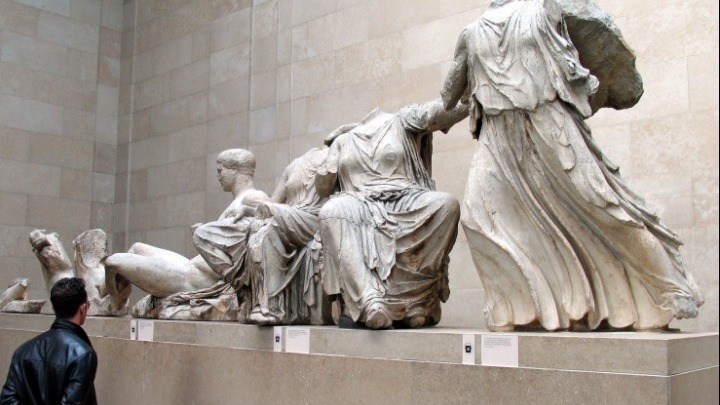WASHINGTON, D.C. – Representatives Gus Bilirakis and Chris Pappas, who serve as Co-Chairs of the Congressional Caucus on Hellenic Issues, sent a letter today calling on Great Britain to return to the negotiation table in discussions about returning the Parthenon Marbles to Greece. The Marbles were created in Athens by Pheidias, the greatest sculptor of the classical antiquity. They were part of a frieze that wrapped around the Temple of Athena. More than 200 years ago the Marbles were removed from Greece by Thomas Bruce, seventh Earl of Elgin and transported to Great Britain. In 1816, the British Parliament voted to purchase the Marbles and they now reside in the British Museum. Despite years of efforts by the Greek Government to retain the Marbles, it has been unable to negotiate an agreement with its British counterparts to return the Marbles to Greece. In recent weeks, negotiations between Greece and the United Kingdom on this important cultural matter have deteriorated.
The lawmakers note, “Today we write to you as members of the Congressional Hellenic Caucus, urging British officials to return to earnest discussions with Greece over the reunification of the Parthenon Sculptures. The return to their historic and natural setting would be lauded and celebrated worldwide, and we call for the resumption of robust negotiations to that end. The Parthenon is considered the high-water mark of world architecture, and its sculptures and reliefs certainly constitute the paramount point of classical art. The Sculptures from the Acropolis of Athens, Greece have been loved and appreciated in their adoptive home in the British Museum for more than two hundred years, inspiring and edifying millions of visitors. However, it is past time that they return home to be reunified with the rest of the sculptures from which they were ripped apart. This will allow visitors to view and appreciate them in totality as part of a greater whole in their natural and rightful environment. The Acropolis Museum, a state-of-the-art museum, was built for this purpose. It will also contribute to greater historical and cultural understanding of ancient Athens, Classical Greece, and the world wonder that is the Parthenon, the temple dedicated to Athena.”
To view the letter in its entirety, click here.







